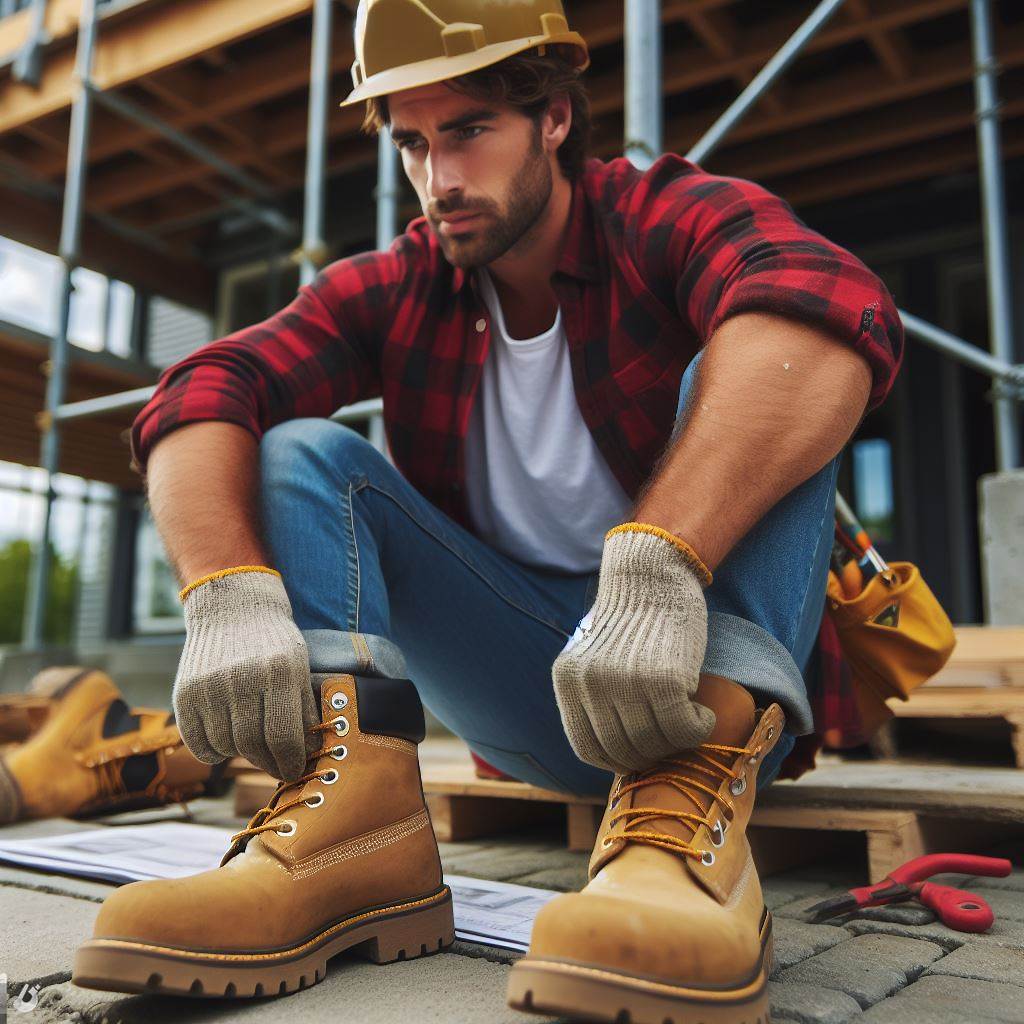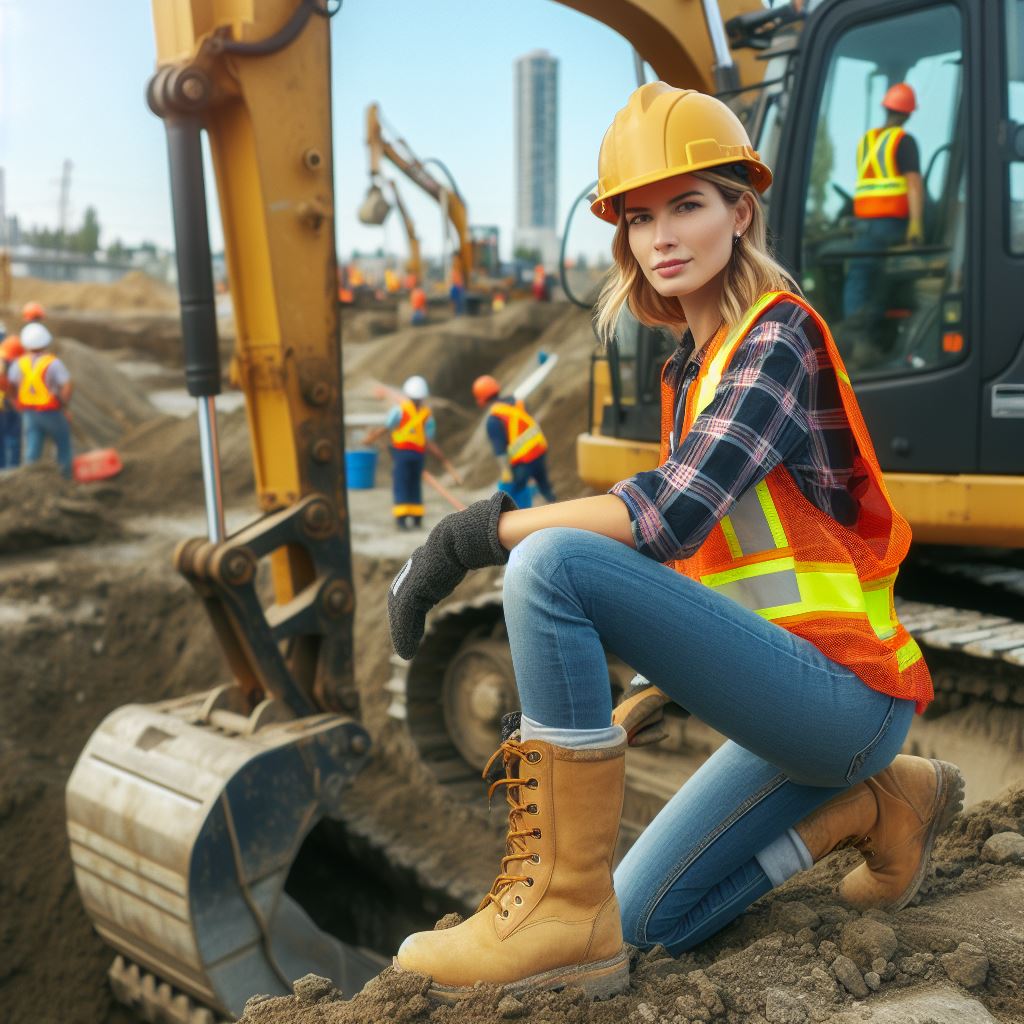Introduction
Emergency plumbing is a crucial topic that needs understanding in Canada.
Understanding the plumbing needs in emergencies is of utmost importance.
In the realm of homeownership, few scenarios elicit as much urgency and concern as plumbing emergencies.
In the vast expanse of Canada, where extreme weather conditions can amplify the impact of plumbing issues, understanding and addressing these needs become paramount.
Whether facing frozen pipes in the frigid winters of the Great White North or grappling with sudden leaks during the unpredictable seasons, navigating emergency plumbing situations is a crucial aspect of responsible homeownership.
This exploration delves into the unique challenges and considerations that Canadian homeowners must grasp to effectively manage and mitigate the consequences of plumbing emergencies.
From the practicalities of prevention to the intricacies of swift response, this discussion aims to shed light on the nuances of emergency plumbing, offering insights that resonate with the distinctive requirements of households across Canada.
Overview of Canada’s Plumbing Infrastructure
In Canada, the plumbing infrastructure plays a crucial role in ensuring the smooth functioning of everyday life.
It is essential for both residential and commercial properties to have a reliable plumbing system, as it is responsible for the distribution of clean water and the disposal of waste.
Understanding Canada’s plumbing needs is vital to address emergency situations effectively.
The general plumbing infrastructure in Canada
Canada has a well-established plumbing infrastructure that comprises a network of pipes, water mains, and indoor fixtures.
Municipalities take responsibility for maintaining this infrastructure and ensuring water quality standards are met.
The plumbing industry follows codes and standards, such as the National Plumbing Code of Canada, to ensure safety and efficiency.
The importance of a reliable plumbing system for everyday life
A reliable plumbing system is crucial for various aspects of everyday life, including drinking, cooking, personal hygiene, and sanitation.
Clean water is essential for these activities, and a dependable plumbing system ensures its availability.
Additionally, proper waste disposal and sanitation help prevent waterborne diseases.
Plumbing emergencies, such as leaks or burst pipes, can cause significant damage and disrupt daily routines.
Canada’s plumbing infrastructure plays a crucial role in maintaining the overall well-being and quality of life for its residents.
Clean water is a fundamental necessity, and a reliable plumbing system ensures its availability for everyday activities.
Understanding the infrastructure and its importance enables better preparation for emergency situations that may arise.
Read: DIY Plumbing or Pro? Canadian Homeowner Tips
Common Emergencies Faced in Canadian households
Common plumbing emergencies such as burst pipes, clogged drains, and water leaks
In Canadian households, several common plumbing emergencies can occur, causing significant disruptions and inconvenience.
- Burst pipes: Freezing temperatures during winter can cause pipes to burst, leading to extensive water damage and potential flooding.
- Clogged drains: Accumulated debris, grease, or foreign objects can block drains, resulting in slow drainage or complete blockages.
- Water leaks: Leaks from pipes, faucets, or toilets can waste a significant amount of water, leading to higher utility bills and potential water damage.
The potential consequences of these emergencies if not addressed promptly
It is crucial to address these plumbing emergencies promptly to prevent further damage and additional expenses.
- Burst pipes: If not addressed promptly, burst pipes can cause extensive water damage to walls, floors, and personal belongings. Mold and mildew growth may follow, posing health risks.
- Clogged drains: Ignoring clogged drains can lead to complete blockages, rendering the affected fixtures unusable. Moreover, it may cause sewage backups, resulting in foul odors and health hazards.
- Water leaks: Neglecting water leaks can result in wasted water, higher utility bills, and potential damage to the structural integrity of the property. It may also contribute to mold and mildew growth.
By understanding the common plumbing emergencies faced in Canadian households and the potential consequences of ignoring them, homeowners can take the necessary steps to prevent or mitigate these issues.
Read: Women in Plumbing: Changing Trends in Canada
Unlock Your Career Potential
Visualize a clear path to success with our tailored Career Consulting service. Personalized insights in just 1-3 days.
Get StartedChallenges in Emergency Plumbing Response
Unique Challenges Faced by Emergency Plumbers in Canada
- Shortage of skilled emergency plumbers increases response time and leaves customers vulnerable.
- Geographical challenges in Canada, such as remote areas and harsh terrains, make reaching plumbing emergencies difficult.
- Language barriers can pose communication challenges between emergency plumbers and non-English or French-speaking residents.
- Availability and accessibility of emergency plumbing services may be limited, especially in rural and remote areas.
- Emergency plumbers face unique challenges when dealing with plumbing emergencies in extreme weather conditions.
- Dealing with frozen pipes, burst pipes, and other weather-related plumbing issues becomes more frequent during the winter.
Impact of Extreme Weather Conditions on Plumbing Systems and Response Time
- Extreme cold temperatures cause pipes to freeze, leading to blockages and potential pipe bursts.
- Heavy rainfall or rapid snow melting can overwhelm sewage systems, causing backups and flooding.
- Storms and hurricanes can result in debris and tree branches blocking drains and causing plumbing issues.
- Extreme heatwaves can lead to water shortages, affecting plumbing systems and emergency response.
- Increased demand during extreme weather events can put pressure on emergency plumbers, leading to longer response times.
- Communication during emergencies may be hindered due to power outages, affecting the coordination of plumbing repairs.
Emergency plumbers in Canada face unique challenges, including a shortage of skilled professionals, geographical obstacles, and language barriers.
Extreme weather conditions further impact plumbing systems and response time, making the services invaluable during these emergencies.
It is crucial to recognize and support the vital role emergency plumbers play in safeguarding communities across Canada.
Read: Plumbing Unions in Canada: Benefits & Joining
Importance of Professionals in Emergency Plumbing
The significance of hiring trained and licensed professionals for emergency plumbing services
- Trained and licensed professionals ensure proper handling of emergency plumbing situations.
- They have the knowledge and expertise to quickly identify and address plumbing issues.
- Professionals follow safety protocols, minimizing the risk of accidents or further damage.
- Hiring professionals guarantees efficient and long-lasting solutions to emergency plumbing problems.
- They use specialized tools and equipment to tackle complex plumbing issues effectively.
- Professionals provide a level of skill and expertise that ensures the job is done right.
- They have the necessary experience to handle various types of emergency plumbing emergencies.
- Choosing professionals helps avoid potential mistakes that can worsen the plumbing situation.
- Professional plumbers offer reliable and trustworthy services for emergency plumbing needs.
- They provide warranties and guarantees on their work, giving peace of mind to homeowners.
The expertise and skills required to effectively address emergencies
- Emergency plumbers must possess excellent problem-solving skills to quickly identify the issue.
- They need to be able to work under pressure and handle urgent situations calmly.
- Professionals should have a comprehensive understanding of plumbing systems and their components.
- They must be knowledgeable about the latest techniques and advancements in the plumbing industry.
- Emergency plumbers should have strong communication skills to effectively interact with clients.
- The ability to assess the extent of damage and provide accurate cost estimates is vital.
- Professionals should have the physical stamina to perform physically demanding plumbing tasks.
- They need to be detail-oriented to ensure every aspect of the plumbing issue is addressed.
- Emergency plumbers should possess excellent time management skills to complete tasks promptly.
- Professionals must adhere to ethical standards and maintain professionalism during emergencies.
Professionalism and expertise are crucial when it comes to emergency plumbing situations.
Hiring trained and licensed professionals ensures the job is handled reliably and efficiently.
These experts possess the necessary skills to address emergencies promptly, minimizing the impact of plumbing-related issues on homes or businesses.
Read: Green Plumbing: Canada’s Eco-Friendly Practices
Local Regulations and Safety Standards
Importance of Following Local Plumbing Regulations and Safety Standards
- Local plumbing regulations and safety standards are crucial for ensuring public health and safety.
- These regulations help prevent contamination of water sources and maintain proper sanitation in homes.
- By following these standards, the risk of plumbing-related accidents, such as leaks or explosions, can be minimized.
- Adhering to local regulations also helps preserve the integrity of the plumbing system and prevent costly repairs.
- Non-compliance with these regulations may result in legal consequences, fines, and even business closures.
Role of Professionals in Ensuring Compliance with Regulations
- Plumbing professionals play a key role in ensuring that local regulations and safety standards are met.
- They possess the knowledge and expertise to navigate through the complexities of these regulations.
- Professionals stay updated with the latest changes in the plumbing codes and follow industry best practices.
- They help homeowners and businesses understand the requirements, obtain necessary permits, and avoid violations.
- By hiring licensed plumbers, individuals can have peace of mind knowing that their plumbing work is compliant.
Importance of Following Local Plumbing Regulations and Safety Standards
When it comes to plumbing, following local regulations and safety standards is of utmost importance.
These regulations are put in place to safeguard public health and maintain the integrity of the plumbing system.
Failing to comply with these regulations can have severe consequences.
By adhering to local plumbing regulations, individuals can ensure that water sources remain uncontaminated, and proper sanitation is maintained in their homes and businesses.
These regulations outline specific guidelines for plumbing installations, materials, and construction methods to prevent potential health hazards.
One of the main purposes of these regulations is to minimize the risk of plumbing-related accidents.
Faulty installations or non-compliant plumbing work can lead to leaks, burst pipes, or even explosions.
Compliance with safety standards helps prevent such incidents and ensures the well-being of residents and employees.
Furthermore, following local plumbing regulations can save individuals from expensive repairs in the long run.
Non-compliant plumbing may result in leaks or other issues that can cause damage to property.
By adhering to regulations, individuals can avoid such costly repairs and maintain the longevity of the plumbing system.
Moreover, failing to comply with local plumbing regulations can have legal consequences. Authorities can inspect plumbing work and issue fines or penalties for non-compliance.
In some cases, businesses operating without proper permits may face closure. It is essential to abide by these regulations to avoid these legal repercussions.
Role of Professionals in Ensuring Compliance with Regulations
Plumbing professionals play a crucial role in ensuring compliance with local regulations and safety standards.
Licensed plumbers have the necessary expertise and experience to navigate through complex plumbing codes.
They stay updated with the latest changes in regulations and follow industry best practices.
When individuals hire professionals, they can rely on them to handle all aspects of compliance.
From understanding the regulations and obtaining permits to conducting inspections, professionals ensure that the plumbing work meets all the necessary requirements.
They play a vital role in educating homeowners and businesses about these regulations and guiding them through the process.
In essence, following local plumbing regulations and safety standards is essential to maintain public health, prevent accidents, and avoid legal consequences.
Professional plumbers are instrumental in ensuring compliance by providing their expertise and guiding individuals through the process.

Emergency Plumbing Services in Canada
Overview of Emergency Plumbing Services
- Emergency plumbing services in Canada provide immediate assistance in plumbing crises.
- These services cater to various plumbing emergencies, including burst pipes, sewer backups, and clogged drains.
- Trained plumbers are available 24/7 to ensure prompt response and minimize damage.
- Emergency plumbing companies offer services for residential, commercial, and industrial properties.
- They employ advanced techniques and tools to swiftly diagnose and fix plumbing issues.
- Professional emergency plumbers undergo rigorous training to handle all types of emergencies efficiently.
- These services prioritize customer safety, satisfaction, and convenience.
- Emergency plumbing companies aim to provide fast and reliable solutions to minimize disruption.
- They work closely with insurance companies to streamline the claims process for homeowners.
- Emergency plumbing services often include preventative maintenance plans to prevent future emergencies.
Importance of Reliable Emergency Plumbing Services
- Access to reliable emergency plumbing services is crucial for homeowners and businesses.
- Plumbing emergencies can cause significant damage if not addressed immediately.
- Quick response by professional plumbers helps prevent further property damage and costly repairs.
- Reliable emergency plumbing services ensure the safety and well-being of residents and employees.
- Having access to 24/7 emergency services provides peace of mind and reduces stress during crises.
- Emergency plumbers have the expertise to handle complex issues that require immediate attention.
- Regular maintenance plans offered by these services help prevent potential emergencies.
- Professional emergency plumbers can identify underlying problems and provide long-term solutions.
- Emergency plumbing services contribute to maintaining a healthy and functional plumbing system.
- Access to reliable emergency services saves time and effort in searching for trustworthy plumbers during emergencies.
Note: When facing a plumbing emergency, always prioritize safety and contact a professional emergency plumber.
In general, emergency plumbing services in Canada are essential for addressing plumbing crises promptly and effectively.
These services offer immediate assistance and employ trained professionals to minimize property damage and ensure customer satisfaction.
Having access to reliable emergency plumbing services is crucial for the safety and well-being of residents and employees.
Additionally, emergency plumbers can provide long-term solutions and preventative maintenance plans to prevent future emergencies.
It is important to prioritize safety and contact a professional emergency plumber when facing a plumbing crisis.
Prevention and Maintenance Tips
Preventive measures to minimize the chances of plumbing emergencies
- Keep drains clean by using a drain strainer to catch hair and other debris.
- Avoid pouring grease or oil down the drain as it can cause clogs.
- Regularly check for leaks in faucets and pipes and repair them promptly.
- Insulate exposed pipes to prevent freezing and potential burst during cold Canadian winters.
- Ensure proper ventilation in bathrooms to prevent humidity and mold growth.
- Teach family members to avoid flushing anything other than toilet paper to prevent toilet clogs.
- Install water-efficient fixtures such as low-flow toilets and showerheads to conserve wate.
- Have a professional plumber conduct regular inspections to identify potential issues before they escalate.
- Know the location of the main water shut-off valve and how to use it in case of emergencies.
- Educate everyone in the household about plumbing best practices, such as not overloading the garbage disposal.
Maintenance tips to ensure the longevity of plumbing systems
- Regularly clean showerheads and faucet aerators to remove mineral deposits that can affect water flow.
- Flush the water heater annually to remove sediment buildup and improve its efficiency.
- Monitor water pressure regularly and adjust it to the manufacturer’s recommended levels to avoid strain on the pipes.
- Inspect and clean gutters and downspouts to prevent debris from clogging the drainage system.
- Test sump pump functionality at least once a year to ensure it is in proper working condition
- Avoid using chemical drain cleaners, as they can corrode pipes over time. Opt for natural alternatives instead.
- Trim tree roots regularly to prevent them from infiltrating and damaging underground pipes.
- Consider installing a water softener to reduce the build-up of mineral deposits in your plumbing system.
- Keep an eye out for signs of water damage, such as water stains or musty odors, and address them promptly.
- Stay cautious during DIY projects, as incorrect installations or repairs can lead to future plumbing issues.
By following these preventive measures and maintenance tips, homeowners can significantly minimize the chances of plumbing emergencies and ensure the longevity of their plumbing systems.
Remember that proactive care and proper education are key to keeping your plumbing functioning smoothly.
Conclusion
This blog post discussed the key points related to emergency plumbing in Canada.
We’ve delved into Canada’s emergency plumbing demands, unveiling crucial insights.
Firstly, the frigid climate accentuates the urgency, with frozen pipes rampant.
Secondly, the aging infrastructure poses a persistent challenge, demanding proactive solutions.
Thirdly, geographical vastness necessitates a decentralized emergency response system.
Understanding these facets underscores the gravity of tailored plumbing strategies. Reiterating, a swift response to frozen pipes is pivotal, safeguarding homes from winter havoc.
Moreover, an overhaul of aging infrastructure stands imperative, fortifying resilience.
Lastly, embracing a geographically sensitive approach ensures efficient emergency plumbing across Canada.
Understanding Canada’s emergency plumbing needs is crucial to ensure timely and efficient responses to plumbing emergencies.
Comprehending the unique needs is not merely advantageous; it’s indispensable for a robust plumbing framework.
The significance lies in mitigating risks, preserving homes, and fostering a nationwide resilience against plumbing emergencies.
It’s time to prioritize and tailor solutions for Canada’s distinct plumbing challenges.




